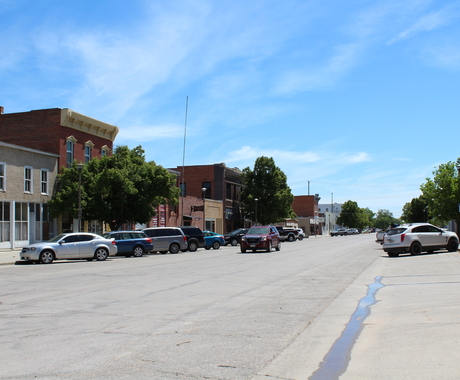Gladys Godinez contributed to this story.
The Center for Rural Affairs is committed to helping our local business partners cope with the economic impact of COVID-19. It’s part of our mission to build prosperous, healthy, and inclusive communities. And, it’s the right thing to do.
Long an important part of rural communities, scrutiny on meatpacking plant companies has intensified as a result of the coronavirus pandemic.
With the closure of some plants in response to the virus has come a new awareness and shock of what can happen to our meat supply. Many are left asking, “Why has our meat supply chain proven to be so vulnerable?”
The unchecked power of the packing plant companies plays a key role.
Farmers and ranchers who make their living raising animals—cattle, hogs, and poultry—have been at the mercy of the packing companies for years. As they have vertically integrated, the companies have ensured that all the production risk of raising livestock and poultry sat squarely on the shoulders of the farmers and ranchers, who often take on hundreds of thousands of dollars of debt to build the facilities needed to raise animals under contract. That debt is difficult to pay off, but for many farmers, the restrictive animal production contracts are the only way they can stay on the family farm.
The current system, however, leaves no room for resiliency. When several packing plants temporarily closed after severe COVID-19 outbreaks, the market was thrown off balance. For independent producers, market prices fell sharply as slaughter capacity tightened. Others worried how to manage animals that were ready to move to market.
Farmers and ranchers weren’t the only ones who feared for their livelihoods and faced tough decisions. Many packing plant workers also had to choose between their livelihoods or their lives, as the packing plants took almost no precautions to protect employees from contracting the coronavirus while at work, which allowed the virus to spread unchecked.
Disassembling animals is hard, physical, smelly labor, and wages for it are low. Yet, for thousands of immigrants it has offered opportunity—many a shrinking rural community has rebounded from the energy and presence of new immigrants employed at packing plants.
However, when the coronavirus arrived, the packing companies gave the health of their workers even less regard than they give to the farmers who supply the animals. As the number of plant workers testing positive for COVID-19 skyrocketed and plant closures spread, the companies have dragged their feet to implement safety measures. Moreover, the federal government has released safety recommendations that plants can use to protect workers, but has not made them mandatory, so conditions vary from plant to plant.
The toll of continued inaction from packing plant owners and the sickness and death of family members has brought deep distress and grief to the communities of packing plant workers.
We are struck that despite their different circumstances, both packing plant workers and farmers are both at the whim of the same forces—meatpackers with too much power. For both farmers and plant workers, we must continue the fight to bring meaningful anticompetitive oversight and worker protections to the industry.





